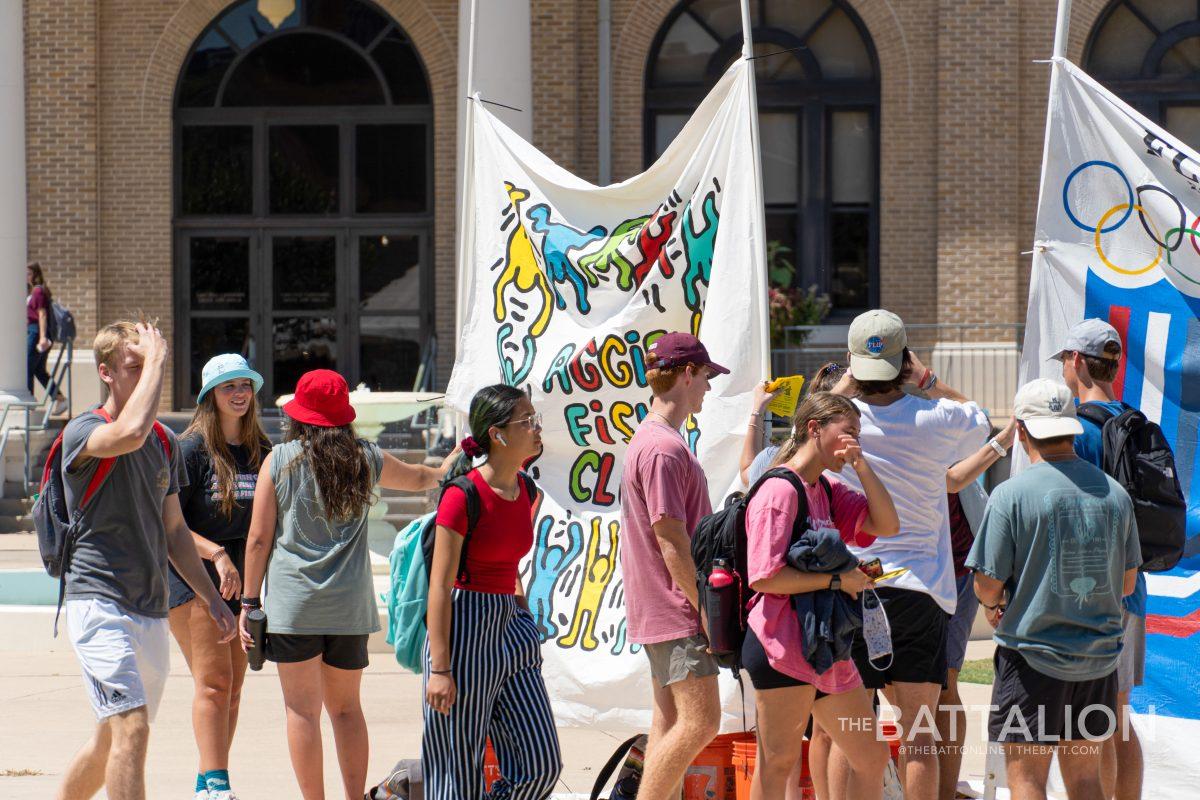Student organizations are an integral part of the Texas A&M community. They provide opportunities to pursue hobbies and common interests, form professional networks and engage in social and political activism. Therefore, it is in A&M’s interests to help these organizations thrive, because they help its students thrive.
Unfortunately, the A&M administration has not done enough to help its student organizations, and it is stifling organizations in many cases by obstructing their access to university recognition. Without recognition, it is virtually impossible for student organizations to function.
Recognition is essential to student organizations because, for one, it enables them to use a meeting room on campus without charge. Without a room, of course, it is significantly more difficult for an organization to conduct its meetings. Therefore, by granting or withholding recognition, the administration has control over the futures of A&M’s student organizations. Sadly, the process for obtaining recognition is fraught with enough red tape to entangle organizations and leave them for dead.
One victim of A&M’s bureaucracy is the campus chapter of Turning Point USA, or TPUSA, a conservative political organization. Chapter president and economics junior Daniel Pate said TPUSA has been recognized by the university for several years, although they have recently lost recognition and are currently seeking to regain it.
Pate said the loss of recognition deprives TPUSA of the ability to not only conduct meetings but also to host speakers, as recognized organizations can use venues for speaking engagements for free as well. The inability to host speaking engagements is especially harmful to TPUSA because, Pate said, political organizations depend on inviting speakers to generate buzz and recruit new members.
Moreover, student organizations must store their funds in an account with the A&M Student Organization Finance Center, and since TPUSA lacks recognition, it cannot access its funds. TPUSA has a speaker lined up but cannot pay them, Pate said, meaning it cannot host them until its recognition is restored. As a result of the lack of meetings and speaking engagements, students are losing interest in TPUSA. If the situation is not rectified in a “very short amount of time,” Pate said, TPUSA will remain dormant for the rest of the semester.
Pate says that TPUSA’s loss of recognition occurred a couple of months ago after its treasurer allegedly failed to complete required training, although he believed he had completed it and the university never provided any warnings or notifications to the contrary. The process of regaining recognition is taking far longer than it should because the Division of Student Affairs, which deals with student organizations, is “understaffed and overwhelmed,” Pate said.
Not only is the university threatening the lives of existing student organizations, it is also — much to the chagrin of most TPUSA members — killing student organizations before they can even be born. One such example is the Poker Club, which chemical engineering senior James Lockwood and a friend attempted to start in summer 2021.
In an email to The Battalion, Lockwood said they tried to gain recognition for the club in July of 2021 and gave up “around the end of September,” meaning they spent at least two months trying to navigate the recognition process. The most time-consuming aspect of the process was searching for an adviser, which was ultimately unsuccessful since no member of the faculty or staff was willing to contribute their time.
Additionally, his friend, who was supposed to become the club treasurer, was required to watch training videos that were largely irrelevant to his role, Lockwood said. “[He] definitely did not need to know 90% of the material in the course.”
Lockwood said the process by which new organizations gain recognition is too difficult. “It’s obscenely difficult to jump through all the hoops to start an organization moving,” he said. He suggested that the university remove the adviser requirement in order to expedite the process. Additionally, the university should “allow a grace period of provisional recognition,” he said, to permit organizations to recruit members to help them navigate the recognition process.
Although the university allows new organizations to operate for 60 days while applying for recognition, they must already have an advisor to do so. One way of making the process easier for organizations would be to combine Lockwood’s two suggestions. Admittedly, advisers are essential, but student organizations should be allowed to operate without them during the recognition process. That way, when the process is completed, it will be easier for the organization to attract an adviser, as the prospective adviser would be more willing to commit to an active organization that has a dedicated membership than a hypothetical group that has yet to get off the ground.
The A&M administration would do well to consider this suggestion and to solicit feedback from other beleaguered student leaders. The organizations’ contributions to campus life are immense, and they are doing as much for A&M as vice versa, if not more. It would benefit the school more than anyone to nurture its organizations and not crush them.
Alex Kourchev is an economics sophomore and opinion writer for The Battalion.
Opinion: A&M should streamline student org recognition process
February 18, 2022
Photo by Photo by William Nye
Student organizations gathered outside of Sbisa Dining Hall to promote events and activities happening on campus.
Donate to The Battalion
Your donation will support the student journalists of Texas A&M University - College Station. Your contribution will allow us to purchase equipment and cover our annual website hosting costs.





















